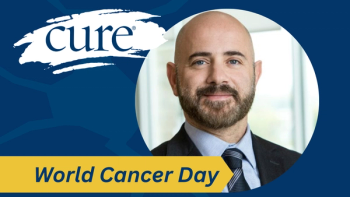
- Fall 2015
- Volume 14
- Issue 4
Avoiding the Panic Button: Recovering After Cancer
A wide range of therapies are available to help cancer survivors through recovery, such as meditation, yoga, animal therapy, or art, theater or music therapy.
A wide range of therapies are available to help cancer survivors through recovery, such as meditation, yoga, animal therapy, or art, theater or music therapy. But these methods might not help when an unexpected ache sends a fresh wave of fear through someone. For acute anxiety, there are several techniques that can defuse panic attacks, such as running up and down stairs or some other form of exercise which may help release the chemicals coursing through the body, says Susan Krigel, a clinical psychologist with the Midwest Cancer Alliance in Kansas City, Kansas. Focusing on breathing and meditating may also help, as may talking with someone.
“Speaking with someone who has been through what you are going through can also help alleviate anxiety,” says Alyson Moadel-Robblee, director of psychosocial oncology at Montefiore Einstein Center for Cancer Care in New York. “Ask your health care team if they can connect you with other cancer survivors or peer counselors.”
Equally important are knowing your triggers and planning ahead, Krigel says. For more general, expected spikes in anxiety, such as the ramped-up worry before an anniversary or a follow-up appointment, she recommends that individuals ask their oncology teams for an accurate understanding of the risk of recurrence and put a plan in place in case the worst happens. In the meantime, write down questions to ask at the appointment, schedule activities to keep your mind focused on other things and focus your energies on setting goals and finding joy in everyday life.
“When setting goals, start low and go slow and be realistic,” Krigel suggests. At the same time, “Do something enjoyable every single day, even if it’s just for 15 minutes.” She also recommends building up a social life, especially in light of emerging evidence that loneliness is a risk factor for a low quality of life. That means finding ways to become part of a social network, such as pursuing a hobby in a group, volunteering, becoming active in church or similar activities.
“Think about what gives your life meaning and what your values are and then how you can work toward them,” Krigel says. “Learn what things you can manage, and acknowledge those that are out of your control.”
While a certain level of background anxiety will likely always linger for most survivors, it’s important to recognize when to seek assistance beyond one’s usual support network, Moadel-Robblee says.
“If you find that feelings of anxiety, depression or hopelessness around thoughts of cancer and recurrence are interfering with your functioning, it’s important to seek help” from a professional counselor such as a psychologist, psychiatrist or social worker, Moadel- Robblee says. “Difficulty sleeping, poor appetite, frequent crying or tearfulness, fears of going out of the house, feeling isolated or isolating yourself and difficulty performing at work or at home are all signs that your abilities to cope are overwhelmed by the stresses you are experiencing.”
Survivors who want professional counselors can start by asking their treatment teams for recommendations, since they are likely to know about local resources, Krigel says. If that doesn’t garner results, the next step would be reaching out to general mental health professionals in the community. Online searches might also turn up local support groups or social media groups that focus on certain cancer types or age categories — these can also help.
Reaching out for that help is a strength, not a weakness, Moadel-Robblee says.
C
“You are not alone,” she says, “and there is always hope.”
Articles in this issue
about 10 years ago
In Approach to Breast Cancer, Consider More Than Screening Guidelinesabout 10 years ago
Speaking Out: Some Cancer Screenings Can Lead to Unnecessary Treatment


